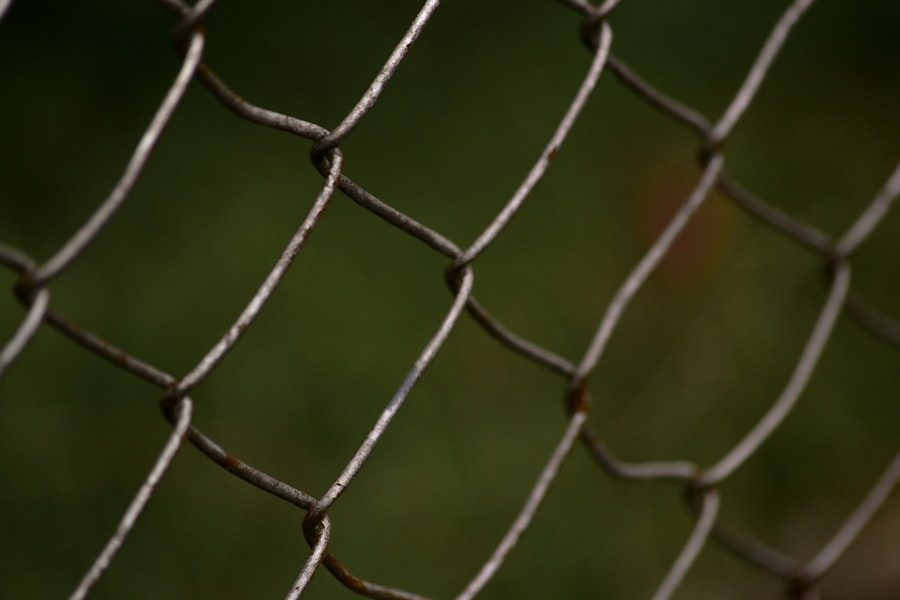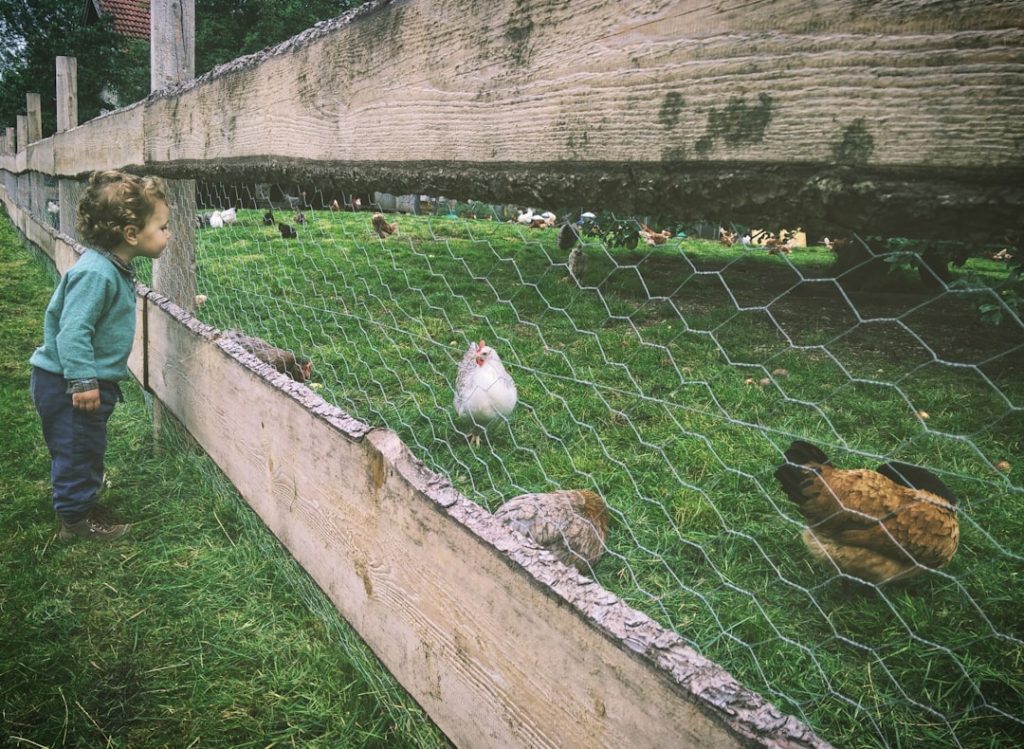Chickens exhibit natural curiosity and social behavior, with a strong instinct for foraging. This innate tendency often leads them to explore areas deemed off-limits, such as gardens or flower beds. Their attraction to bright colors and shiny objects further motivates them to venture into restricted zones.
Comprehending these inherent behaviors is essential for developing effective strategies to manage chicken movement. Chickens are also creatures of habit and respond well to positive reinforcement training. By leveraging this knowledge, it is possible to implement training techniques that discourage them from entering prohibited areas.
It is crucial to recognize that chickens are not intentionally destructive; rather, they are acting on their natural instincts. This understanding allows for the development of empathetic and humane solutions to address the issue of chickens entering unwanted areas.
Table of Contents
- 1 Creating Physical Barriers
- 2 Using Natural Deterrents
- 3 Implementing Visual and Auditory Deterrents
- 4 Establishing a Dedicated Chicken-Free Zone
- 5 Providing Alternative Distractions
- 6 Seeking Professional Help
- 7 FAQs
- 7.1 What are some natural ways to keep chickens away from the garden?
- 7.2 How can I train my chickens to stay out of the garden?
- 7.3 Are there any commercial products available to keep chickens away from the garden?
- 7.4 What are some common mistakes to avoid when trying to keep chickens away from the garden?
- 7.5 Is it possible to coexist with chickens and a garden?
Key Takeaways
- Chickens are naturally curious and will explore their surroundings
- Physical barriers such as fences and netting can effectively keep chickens out of certain areas
- Natural deterrents like citrus peels and strong-smelling herbs can repel chickens
- Visual and auditory deterrents such as scarecrows and noise-making devices can discourage chickens from entering specific areas
- Creating a dedicated chicken-free zone with proper fencing and signage can help keep chickens away
- Providing alternative distractions like dust baths and foraging areas can redirect chickens’ attention
- Seeking professional help from animal behaviorists or poultry experts can provide tailored solutions for chicken behavior issues
Creating Physical Barriers
Creating Effective Barriers
One of the most effective ways to keep chickens out of certain areas is by creating physical barriers. This can be achieved through the use of fencing, netting, or other structures that prevent chickens from accessing the restricted area. When implementing physical barriers, it’s important to ensure that they are secure and properly installed to prevent any gaps or weak points that chickens could exploit.
Maintenance is Key
Additionally, it’s crucial to regularly inspect and maintain these barriers to ensure their effectiveness over time.
Raised Garden Beds: A Double Benefit
Another physical barrier that can be effective in deterring chickens is the use of raised garden beds or elevated planters. By elevating the plants and flowers off the ground, it becomes more difficult for chickens to access them, reducing the likelihood of damage. This approach not only serves as a deterrent but also has the added benefit of protecting the plants from other potential threats such as pests or rodents.
Using Natural Deterrents

In addition to physical barriers, natural deterrents can also be effective in keeping chickens out of unwanted areas. One common natural deterrent is the use of strong-smelling plants or herbs that chickens find unappealing. For example, planting rosemary, lavender, or mint around the perimeter of a garden can help deter chickens from entering the area.
These plants not only serve as a natural deterrent but also add beauty and fragrance to the garden. Another natural deterrent that can be effective is the use of mulch or gravel. Chickens generally do not like walking on these types of surfaces, so spreading mulch or gravel around the base of plants or in areas where chickens tend to frequent can discourage them from entering.
Additionally, these materials can help retain moisture in the soil and suppress weed growth, providing multiple benefits for the garden.
Implementing Visual and Auditory Deterrents
Visual and auditory deterrents can also be effective in deterring chickens from entering restricted areas. One common visual deterrent is the use of scarecrows or other decoys that mimic predators. Placing these decoys strategically around the garden can create a sense of danger for the chickens, discouraging them from entering the area.
It’s important to regularly move these decoys to prevent chickens from becoming accustomed to their presence. Auditory deterrents, such as wind chimes or motion-activated sound devices, can also be effective in keeping chickens away from certain areas. The sound of these devices can startle chickens and make them uncomfortable, leading them to avoid the area altogether.
When using auditory deterrents, it’s important to consider the proximity to neighboring properties and ensure that the sound does not cause a disturbance to others.
Establishing a Dedicated Chicken-Free Zone
Another effective strategy for keeping chickens out of unwanted areas is by establishing a dedicated chicken-free zone within the property. This can be achieved by fencing off a specific area where chickens are not allowed to roam freely. By providing a designated space for chickens to forage and roam, it reduces the likelihood of them venturing into off-limits areas such as gardens or flower beds.
In addition to physical barriers, signage can also be used to clearly demarcate the chicken-free zone and remind both humans and chickens of the boundaries. By clearly communicating these boundaries, it helps reinforce the idea that certain areas are off-limits for the chickens, ultimately reducing the likelihood of them entering restricted areas.
Providing Alternative Distractions

Providing Alternative Distractions
One approach to keeping chickens out of unwanted areas is by providing alternative distractions that capture their attention elsewhere. This can be achieved by creating designated foraging areas with treats or scratch grains that encourage chickens to spend their time in specific locations rather than venturing into off-limits areas. By providing an attractive alternative, it reduces the likelihood of chickens causing damage in restricted areas.
Enrichment Activities for Engagement
Additionally, providing enrichment activities such as hanging treats or toys can also help keep chickens occupied and engaged in designated areas. By stimulating their natural instincts and providing mental stimulation, it reduces their interest in exploring off-limits areas.
Promoting Overall Well-being
This approach not only serves as a deterrent but also promotes the overall well-being of the chickens by providing them with opportunities for mental and physical enrichment.
Seeking Professional Help
If all else fails, seeking professional help from a veterinarian, animal behaviorist, or experienced chicken keeper can provide valuable insights and guidance in addressing issues with chickens entering unwanted areas. These professionals can assess the situation and provide tailored recommendations based on their expertise and experience working with chickens. In some cases, professional help may involve behavior modification techniques or training strategies to discourage chickens from entering restricted areas.
Additionally, professionals can provide advice on habitat management and environmental modifications that can help address underlying factors contributing to the behavior. In conclusion, keeping chickens out of unwanted areas requires a combination of understanding their behavior, implementing effective deterrents, and providing alternative solutions. By taking a holistic approach that considers both the needs of the chickens and the goals of the property owner, it’s possible to develop strategies that are both effective and humane in keeping chickens out of restricted areas.
With careful planning and consistent implementation, it’s possible to create a harmonious coexistence between chickens and their human counterparts while protecting valuable plants and gardens from potential damage.
If you’re looking for more tips on keeping chickens away from your garden, you might want to check out this article on The Chicken Coop Country Diner. It offers insights on how to design a chicken coop that will keep your feathered friends happy and away from your prized plants.
FAQs
What are some natural ways to keep chickens away from the garden?
Some natural ways to keep chickens away from the garden include using physical barriers such as fences or netting, planting deterrent plants like marigolds or lavender, and using natural repellents like citrus peels or vinegar.
How can I train my chickens to stay out of the garden?
You can train your chickens to stay out of the garden by using positive reinforcement, such as providing treats in areas away from the garden, and using negative reinforcement, such as making loud noises or using a water sprayer when they enter the garden.
Are there any commercial products available to keep chickens away from the garden?
Yes, there are commercial products available such as chicken repellent sprays or electronic deterrent devices that emit sounds or vibrations to keep chickens away from the garden.
What are some common mistakes to avoid when trying to keep chickens away from the garden?
Some common mistakes to avoid when trying to keep chickens away from the garden include using harmful chemicals or pesticides, neglecting to secure all entry points to the garden, and not providing alternative areas for the chickens to forage and explore.
Is it possible to coexist with chickens and a garden?
Yes, it is possible to coexist with chickens and a garden by implementing a combination of physical barriers, natural deterrents, and proper training techniques to keep the chickens away from the garden while still allowing them to roam and forage in designated areas.
Meet Walter, the feathered-friend fanatic of Florida! Nestled in the sunshine state, Walter struts through life with his feathered companions, clucking his way to happiness. With a coop that’s fancier than a five-star hotel, he’s the Don Juan of the chicken world. When he’s not teaching his hens to do the cha-cha, you’ll find him in a heated debate with his prized rooster, Sir Clucks-a-Lot. Walter’s poultry passion is no yolk; he’s the sunny-side-up guy you never knew you needed in your flock of friends!







